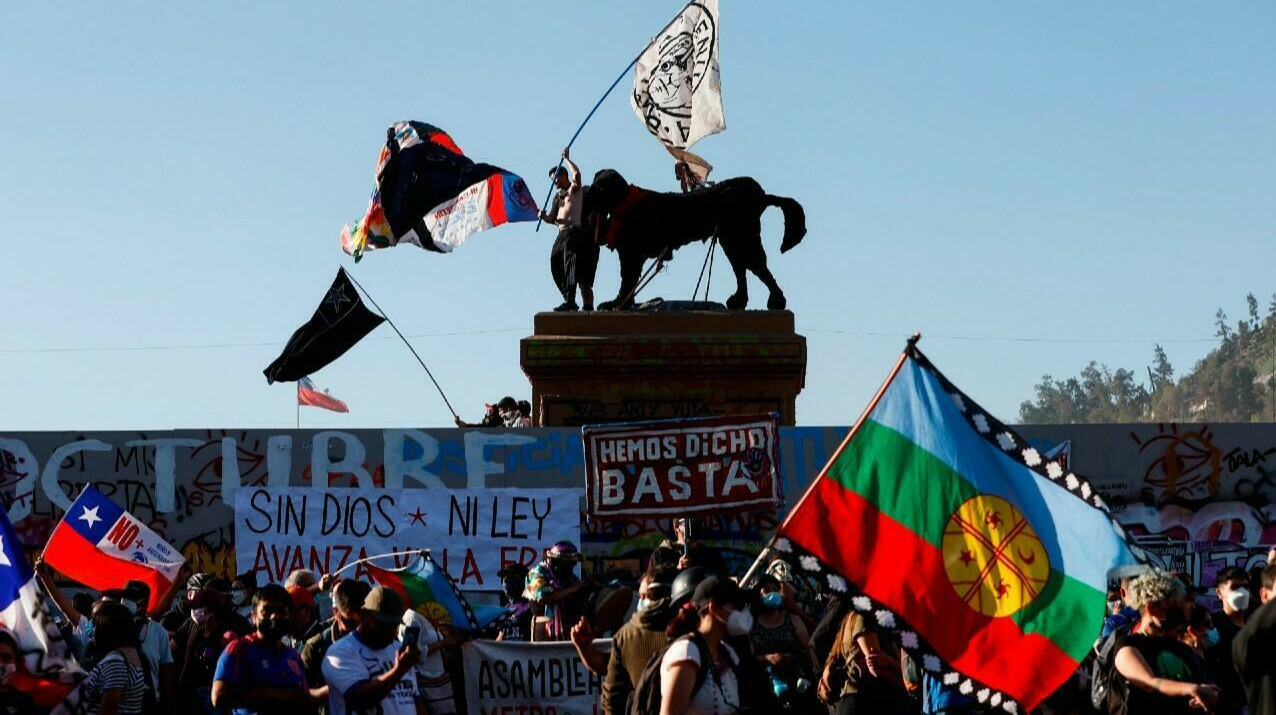
In Chile, the balance between expectations and realities is still negative. Photo: France 24
By Guillermo Alvarado
What was once a student protest over the increase of the fare in the subway, one of the main means of transportation in Santiago de Chile, derived into a succession of increasingly broad demands that put the government against the wall.
Perhaps in the hope of being able to execute the catbird's maneuver, that one must change if one wants to continue living as usual, President Sebastián Piñera gave in to the demand to hold a referendum to call a constituent assembly and draft a new Magna Carta.
The fact is that it soon became clear that the social pressure was deeper than the mere presence of the people in the streets, since not only did the "yes" to the Law of Laws to replace the one inherited With marches in the capital and several cities in the interior of Chile, tens of thousands of people remembered the second anniversary of the social uprising that began on October 18, 2019 -- the initial step of the urgent political and socioeconomic transformations needed in that country.from the Pinochet dictatorship triumph, but also the right wing was left in a clear minority in the formation of the Assembly.
Undoubtedly, the most concrete and real fact of change in these two years is the beginning of the work towards a Constitution with a strong representation of the interests of the middle and lower strata of the population, including delegates of the indigenous peoples, so far left out of the national life.
Another event is knocking on the doors, the presidential elections of November 21, where there is a real possibility of a progressive triumph because the average of polls of voting intention favors Gabriel Boric, of the Frente Amplio which is part of the coalition Apruebo Dignidad.
It would be necessary to consolidate this option with a consistent attitude of other leftist sectors, which seem to put their own interests before the common good of the whole nation.
The danger posed by the growth of the extreme right, represented by José Antonio Kast, who overtook Piñera's candidate, Sebastián Sichel, in the presidential race, and to whom some last minute poll gives a technical tie with Boric, cannot be ignored.
What Chile has not changed in the last 24 months is the lack of respect for human rights and citizen guarantees. There is still a long way to go before justice is done regarding the abuses committed by the carabineros in 2019, and which in fact are repeated all the time with widespread impunity.
Progress has been made in certain aspects, it is true, but the balance between expectations and realities is still negative, although the hope for change is strong and must be carefully guarded.

